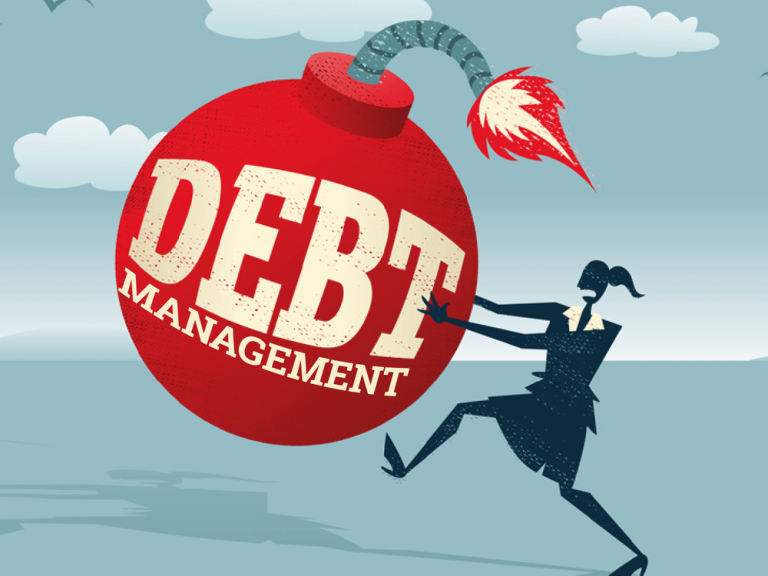In today’s fast-paced world, navigating the complexities of personal finance can feel overwhelming. As we move through various life stages—whether it’s securing our first job, purchasing a home, or planning for retirement—gaining a solid understanding of financial literacy is crucial. Financial literacy is not merely a buzzword; it’s an essential skill set that empowers individuals to make informed and effective financial decisions. Throughout this article, we will delve into the importance of financial education, highlighting why we must prioritize this knowledge in our lives.
Financial Literacy: The Importance of Financial Education in Everyday Life
As we take a moment to reflect on the significance of financial literacy, it’s important to recognize that financial education can lay a strong foundation for our future. A well-rounded grasp of financial concepts can help us avoid common pitfalls, leading to a more prosperous and secure life. Moreover, as we confront financial challenges, from managing student loans to planning for unexpected expenses, understanding financial literacy equips us with the tools to face these issues head-on.
Why Investing in Financial Literacy Matters
Investing in financial literacy is as crucial as investing in stocks or real estate. Just as wise investments can yield substantial returns, effective financial education pays dividends in many forms. By understanding basic financial principles, individuals can cultivate healthy spending habits, establish robust savings strategies, and ultimately, build wealth over time.
Studies show that financial literacy is directly linked to positive financial behaviors. For instance, individuals with a strong understanding of financial topics are more likely to save consistently, manage credit wisely, and invest in their futures rather than falling into debt. The benefits of financial literacy extend beyond personal finance; they also impact community well-being and economic growth as a whole.
Embarking on Your Journey to Financial Literacy
Understanding Financial Concepts
Before you can truly appreciate the importance of financial education, it’s vital to break down the essential concepts. Financial literacy encompasses a wide array of topics, including budgeting, saving, investing, credit management, and retirement planning.
Each of these areas is connected, creating a comprehensive landscape of financial knowledge. For instance, a well-structured budget can help you allocate funds for savings and investments while ensuring that expenses remain manageable. By mastering the ins and outs of budgeting, you lay the groundwork for long-term financial stability.
Setting Financial Goals
Once you have a foundational understanding of financial concepts, the next step involves setting clear financial goals. Whether it’s saving for a vacation, building an emergency fund, or planning for your child’s education, having defined objectives provides direction and motivation.
Financial literacy highlights the importance of specificity in goal-setting. Instead of saying, “I want to save money,” articulate your goals with measurable outcomes. For example, “I want to save $5,000 in the next year for a down payment on a home.” This approach not only makes the goal attainable, but it also fosters accountability.
Utilizing Resources for Financial Education
Fortunately, there are countless resources available to help enhance your financial literacy. From online courses and workshops to books and podcasts, individuals can easily access information that suits their learning styles. One of the most effective ways to engage with financial education is to seek out interactive platforms or community initiatives focused on financial literacy.
Community Programs and Workshops
Many local organizations offer workshops and seminars that provide practical knowledge about managing finances. These community programs often provide tailored advice to address specific demographics, such as young adults, families, or retirees. Participating in these programs not only deepens your understanding but also connects you with like-minded individuals who share similar financial aspirations.
Financial Literacy: The Importance of Financial Education for Future Generations
As we consider the significance of financial literacy, we must also acknowledge our role in shaping future generations. Teaching children and young adults about money management from an early age instills habits that can carry them through their entire lives.
Introducing Financial Education at Home
Parents and guardians play a pivotal role in developing their children’s financial understanding. By incorporating lessons about saving, budgeting, and responsible spending into everyday conversations, adults can cultivate financial savvy in the next generation. Simple practices like having children save their allowance can lay the foundation for future financial success.
School Programs and Financial Literacy Curriculum
Incorporating financial literacy into school curricula is another effective avenue for boosting financial education. Schools across the country are recognizing the need to prepare students for real-world financial challenges. Through structured classes, workshops, and experiential learning opportunities, students can gain first-hand experience that prepares them for adulthood.
The Continual Learning Process
Financial literacy is not a one-time achievement; it’s an ongoing journey that requires continual learning. The financial landscape is constantly evolving due to technological advancements, regulatory changes, and global economic shifts. Staying current with these changes is crucial, and individuals must remain adaptable.
Utilizing Online Tools and Resources
The web is an abundant source of financial education resources. Online tools, budgeting apps, and investment platforms provide invaluable insights and practical guidance. Many of these tools are designed to simplify the learning process, making it easier to track expenses, set budgets, and analyze investment options.
Engaging with Financial Communities
Engaging with communities that prioritize financial education can enhance your understanding and motivation. Online forums, social media groups, and local meetups allow individuals to share experiences, ask questions, and learn from one another. Surrounding yourself with supportive, knowledgeable peers minimizes feelings of isolation when navigating personal finance.
The Bottom Line: Financial Literacy is Key
As we reflect on Financial Literacy: The Importance of Financial Education, it’s clear that the benefits are vast and far-reaching. By investing in our own financial education, we not only fortify our individual financial wellness but also contribute positively to our families and communities. Making financial literacy a priority is essential for both personal growth and the development of a financially informed society.
In conclusion, embarking on our journey to financial literacy—and advocating for its importance in education—will yield tremendous benefits for generations to come. It is not just about understanding numbers and budgets; it is about empowering ourselves to lead fulfilling, financially secure lives. So let us champion Financial Literacy: The Importance of Financial Education, cultivating a culture of financial awareness that resonates throughout our communities.



